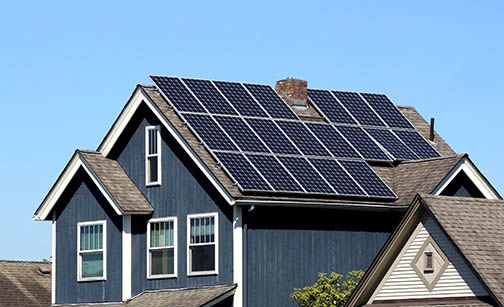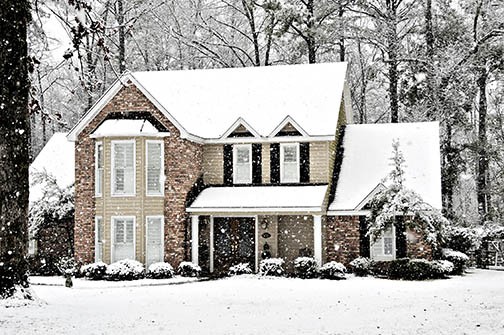 Last week’s economic readings included reports on construction spending, Case-Shiller Home Price Indices and pending home sales. Fed Chair Janet Yellen said in a speech that federal interest rates would “likely” be raised. Weekly reports on new jobless claims and mortgage rates were also released.
Last week’s economic readings included reports on construction spending, Case-Shiller Home Price Indices and pending home sales. Fed Chair Janet Yellen said in a speech that federal interest rates would “likely” be raised. Weekly reports on new jobless claims and mortgage rates were also released.
Pending Home Sales Slump as Available Homes Dwindle
Pending Home sales fell in January as inventories of available homes declined. Prospective buyers faced with fewer choices may have chosen to wait rather than purchase homes that weren’t a good match for their needs. Analysts expected pending home sales to grow by 1.10 percent in January, but they fell by 2.80 percent to an index reading of 106.4, which was the lowest reading since January 2016. Additional factors contributing to lower pending sales, which represent sales under contract but not yet closed, include consumer uncertainty about economic conditions under the new administration and fear of rising mortgage rates. Affordability is also an issue for first-time buyers as short supplies of homes create more competition among prospective buyers.
Real estate pros have repeatedly said that the only way to resolve shortages of homes is to build more. While home builder confidence in market conditions has grown in recent months, housing starts and construction spending have not followed suit. Construction spending in January was 0.10 percent lower despite projections of 0.60 percent growth in construction spending and a positive reading of 0.10 percent in spending for December. Winter weather conditions can affect construction during winter months. Ongoing shortages of available lots and labor have also held back builders from optimum construction rat
Home Prices Rise in December
S&P Case-Shiller Home Prices rose to 5.80 percent on a seasonally-adjusted annual rate. November’s reading showed 5.60 percent growth in average home prices, Home prices continue to grow in the West as Seattle, Washington, Portland, Oregon and Denver, Colorado held on to the top three spots for fastest growth in home prices among cities surveyed.
Mortgage Rates, New Jobless Claims Lower
Freddie Mac reported lower average mortgage rates last week. 30-year fixed rate mortgages averaged 4.10 percent rate, which was six basis points lower than the prior week. The average rate for a 15-year fixed rate mortgage was five basis points lower at 3.32 percent. 5/1 adjustable rate mortgage rates were two basis points lower at 3.14 percent on average. Discount points averaged 0.50 percent for fixed rate mortgages and 0.40 percent for 5/1 adjustable rate mortgages.
New jobless claims were lower last week with 233,000 new claims filed as compared to expectations of 245,000 new claims filed. There were 244,000 new claims filed in the prior week.
What‘s Ahead
Labor reports including ADP payrolls Non-farm payrolls and the national unemployment rate will be released along with weekly readings on mortgage rates and new jobless claims.
 Many people are concerned with having a negative impact on the environment, but it can be hard to know where to begin when it comes to climate friendly solutions around the home. Whether you’re planning for a future investment or are interested in fixing-up the home you’re in, here are some solutions for greening up your personal space that won’t bust the bank.
Many people are concerned with having a negative impact on the environment, but it can be hard to know where to begin when it comes to climate friendly solutions around the home. Whether you’re planning for a future investment or are interested in fixing-up the home you’re in, here are some solutions for greening up your personal space that won’t bust the bank. December home prices continued to rise per December readings for Case-Shiller’s National and 20-City Home Price Indices. On average, national home prices increased by 5,80 percent year-over-year and exceeded November’s year-over-year reading of 5.60 percent. The 20 City Index, which analysts follow more closely than the National Home Price Index, posted a year-over-year gain of 5.60 percent in December, which exceeded an expected reading of 5.40 percent and November’s year-over-year reading of 5.20 percent growth.
December home prices continued to rise per December readings for Case-Shiller’s National and 20-City Home Price Indices. On average, national home prices increased by 5,80 percent year-over-year and exceeded November’s year-over-year reading of 5.60 percent. The 20 City Index, which analysts follow more closely than the National Home Price Index, posted a year-over-year gain of 5.60 percent in December, which exceeded an expected reading of 5.40 percent and November’s year-over-year reading of 5.20 percent growth. With all of the busyness of the winter months and most people settling in for the season, it can be hard to achieve a successful home sale at the end of the year. Fortunately, if you simply can’t wait to put your home on the market, here are some staging tips that will engage potential buyers so you won’t have to wait much longer for an offer.
With all of the busyness of the winter months and most people settling in for the season, it can be hard to achieve a successful home sale at the end of the year. Fortunately, if you simply can’t wait to put your home on the market, here are some staging tips that will engage potential buyers so you won’t have to wait much longer for an offer. There are many traditional ways to sell your home, from the MLS listings to a sign in the front yard. However, the ease of the Internet and the utility of social media can make it easier than ever to find the right buyer. If you’re getting prepared to put your home on the market and are trying to determine a strategy, here are some ways you can use social media to improve your selling odds.
There are many traditional ways to sell your home, from the MLS listings to a sign in the front yard. However, the ease of the Internet and the utility of social media can make it easier than ever to find the right buyer. If you’re getting prepared to put your home on the market and are trying to determine a strategy, here are some ways you can use social media to improve your selling odds. Last week’s readings on new and existing home sales provided further evidence of strengthening housing markets. Both categories of home sales exceeded December’s readings. Consumer sentiment was lower in February than for January and average rates were mixed with fixed rates higher and the rate for 5/1 adjustable rate mortgages lower. Consumer sentiment lower in February.
Last week’s readings on new and existing home sales provided further evidence of strengthening housing markets. Both categories of home sales exceeded December’s readings. Consumer sentiment was lower in February than for January and average rates were mixed with fixed rates higher and the rate for 5/1 adjustable rate mortgages lower. Consumer sentiment lower in February.